Alienware’s new gaming laptop is a kick in the teeth for Intel’s new CEO
Et tu, Michael?
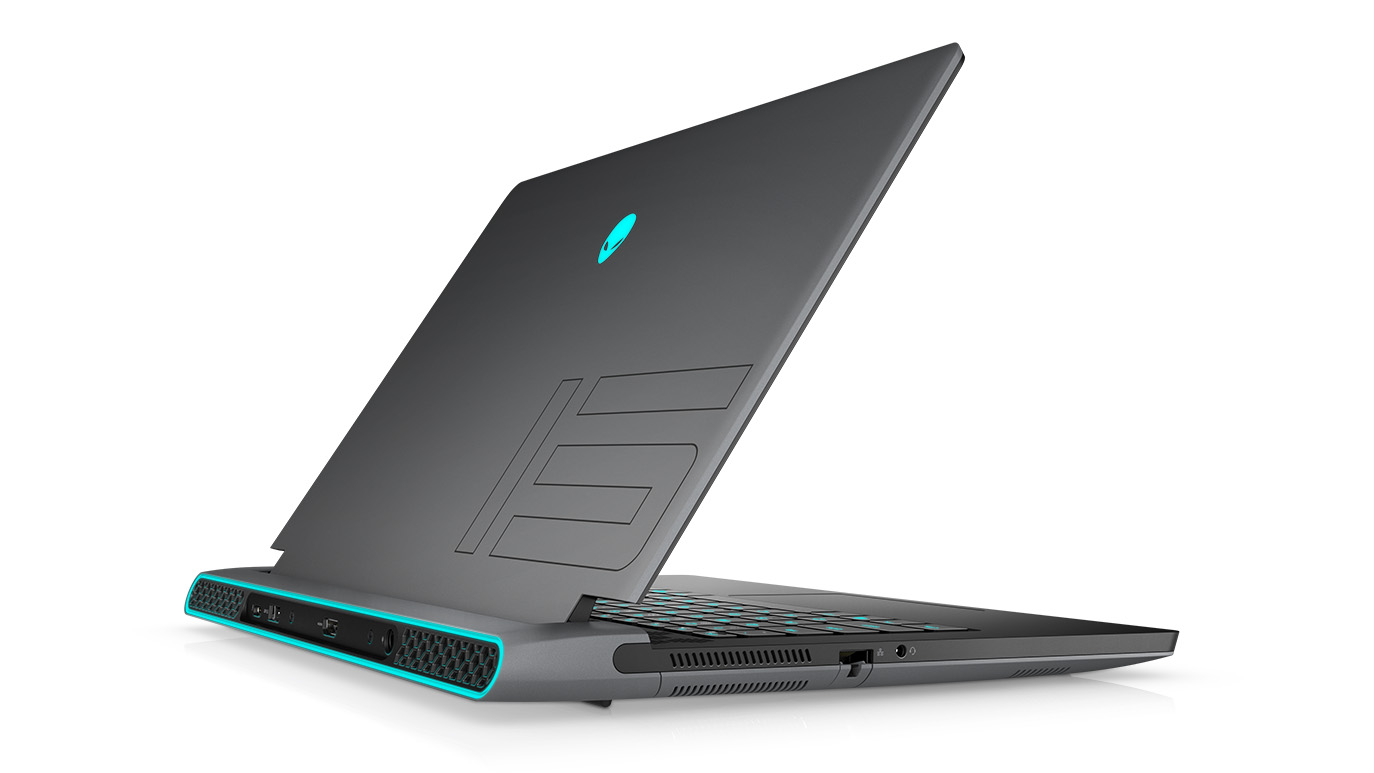

Pat Gelsinger must be feeling somewhat conflicted right now. Although his tenure as CEO of VMware saw occasional moments of tension over the company’s independence from parent firm Dell Technologies, the relationship between the two organisations was a fruitful one, and when Gelsinger left the business, the split appeared amicable enough. However, it seems Dell may be taking its dumping a bit more harshly than expected.
The company has this week announced it’s launching a series of AMD-powered laptops for the first time in over a decade. The company’s mainstream gaming line will be graced by the new Dell G15 Ryzen Edition, while PC gaming subsidiary Alienware will also be refreshing its mighty m15 laptop to feature a Ryzen chip. As the company’s vice president of product management for its gaming division, Vivian Lien, pointed out in a blog post, the last time Dell and AMD collaborated on a gaming laptop, Halo 3 was still on shelves.
If anything, you’d expect a top exec from one company moving to the helm of one of its closest partners to result in a deepening of ties between the two, but Dell’s recent announcement seems to indicate the opposite; “Powering today’s blockbuster games requires serious performance,” Lien writes, “and very few know what that requires better than our friends at AMD”.
Intel would presumably offer the counter-argument that its chips power almost everything else in Dell’s laptop line-up, gaming-focused or not – and while that’s technically correct, this will doubtless be a bruising blow for the company. Much like the pornography industry, gamers usually act as a bellwether for the mainstream tech sector, and this move indicates that Intel’s stranglehold over the CPU market is rapidly waning.
The company has been losing ground in the desktop enthusiast sector for some time, but until now, pre-built gaming machines and laptops have still been largely Intel-based. The fact that Dell is introducing a Ryzen-based machine – and with some amount of fanfare to boot – suggests that this may not be the case for long.
If Gelsinger wants to pump the brakes on this process, then he’ll need OEM partners like his former boss on his side. Trust is a fragile thing, not easily regained once it’s been lost, and the main reason that AMD is only just starting to come back to prominence after several years of outstanding chip performance is that Intel was far more trusted by OEMs as a dependable option. If that trend is reversing, the last thing Gelsinger needs is one of the biggest PC manufacturers in the game deserting him – especially one that he was previously so deeply involved with.
Happily for Pat, there’s still time to fix this. Dell is likely using this launch as a litmus test for the introduction of more AMD-powered machines, to measure the market’s appetite for a wider rollout. A similar trend can be observed in the company’s server lineup; Dell has been scaling up its Epyc portfolio since 2018, and while the majority of its servers are still Xeon-based, the ratio is getting more even by the year. If Dell follows a similar pattern with its gaming business, it will take until at least 2023 before AMD-powered laptops are a significant part of its range.
Get the ITPro daily newsletter
Sign up today and you will receive a free copy of our Future Focus 2025 report - the leading guidance on AI, cybersecurity and other IT challenges as per 700+ senior executives
This gives Gelsinger a reasonable (if not comfortable) window to get Intel’s R&D back on track and deliver the kind of engineering gains that might stop AMD’s encroachment into the fiefdom Intel has carved out for itself. It only remains to be seen if this will be the kind of breakup that results in mutual growth, or if Intel will be doing the professional equivalent of leaving Dell tearful 3am voicemails in two years’ time.
Adam Shepherd has been a technology journalist since 2015, covering everything from cloud storage and security, to smartphones and servers. Over the course of his career, he’s seen the spread of 5G, the growing ubiquity of wireless devices, and the start of the connected revolution. He’s also been to more trade shows and technology conferences than he cares to count.
Adam is an avid follower of the latest hardware innovations, and he is never happier than when tinkering with complex network configurations, or exploring a new Linux distro. He was also previously a co-host on the ITPro Podcast, where he was often found ranting about his love of strange gadgets, his disdain for Windows Mobile, and everything in between.
You can find Adam tweeting about enterprise technology (or more often bad jokes) @AdamShepherUK.
-
 Bigger salaries, more burnout: Is the CISO role in crisis?
Bigger salaries, more burnout: Is the CISO role in crisis?In-depth CISOs are more stressed than ever before – but why is this and what can be done?
By Kate O'Flaherty Published
-
 Cheap cyber crime kits can be bought on the dark web for less than $25
Cheap cyber crime kits can be bought on the dark web for less than $25News Research from NordVPN shows phishing kits are now widely available on the dark web and via messaging apps like Telegram, and are often selling for less than $25.
By Emma Woollacott Published
-
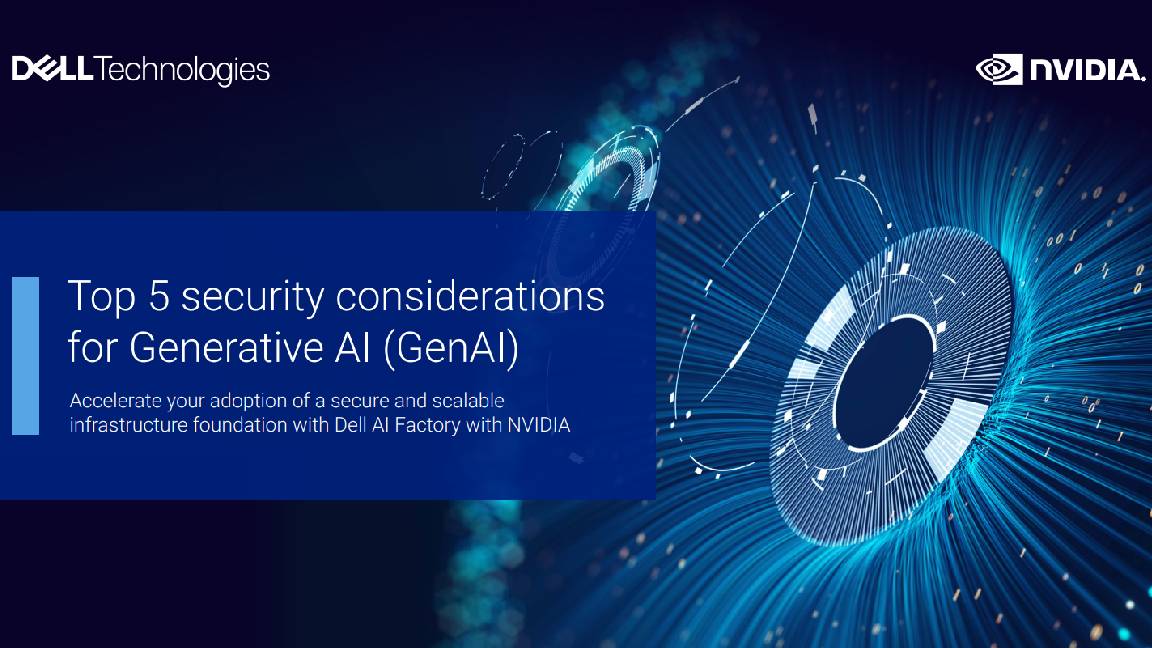 Top five security considerations for Generative AI (Gen AI)
Top five security considerations for Generative AI (Gen AI)whitepaper Protection across AI attack vectors
By ITPro Published
-
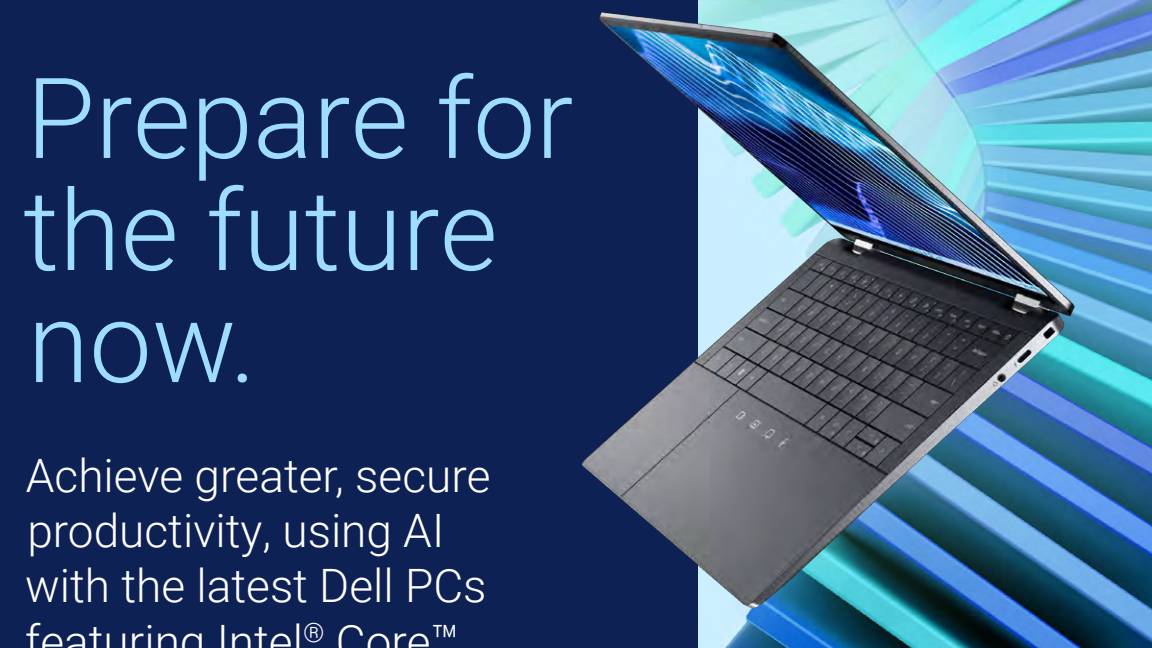 Prepare for the future now. Achieve greater, secure productivity, using AI with the latest Dell PCs powered by Intel® Core™ Ultra and Copilot
Prepare for the future now. Achieve greater, secure productivity, using AI with the latest Dell PCs powered by Intel® Core™ Ultra and Copilotwhitepaper Protection across AI attack vectors
By ITPro Published
-
 Deliver engaging and personalized experiences with your own digital assistants
Deliver engaging and personalized experiences with your own digital assistantswhitepaper Protection across AI attack vectors
By ITPro Published
-
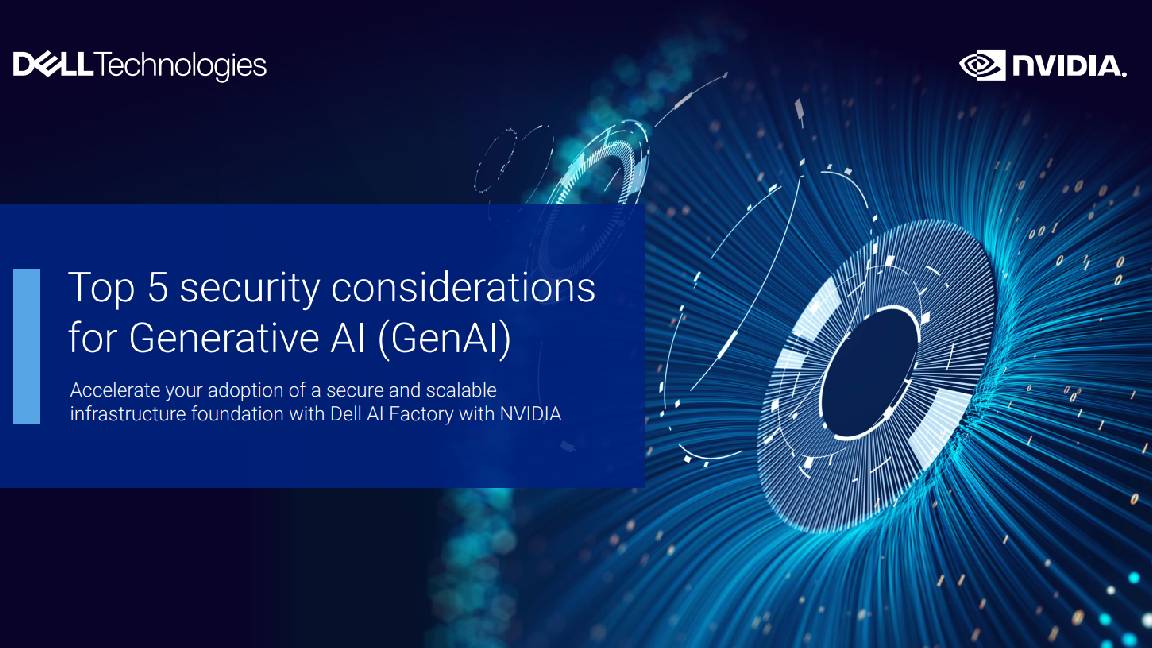 Top five security considerations for generative AI (Gen AI)
Top five security considerations for generative AI (Gen AI)whitepaper Accelerate your adoption of a secure and scalable infrastructure foundation with Dell AI Factory with NVIDIA
By ITPro Published
-
 The power of generative AI to revolutionize content creation
The power of generative AI to revolutionize content creationwhitepaper Protection across AI attack vectors
By ITPro Published
-
 Your way to AI
Your way to AIwhitepaper Protection across AI attack vectors
By ITPro Published
-
 Gaining timely insights with AI inferencing at the edge
Gaining timely insights with AI inferencing at the edgeWhitepaper Business differentiation in an AI-everywhere era
By ITPro Published
-
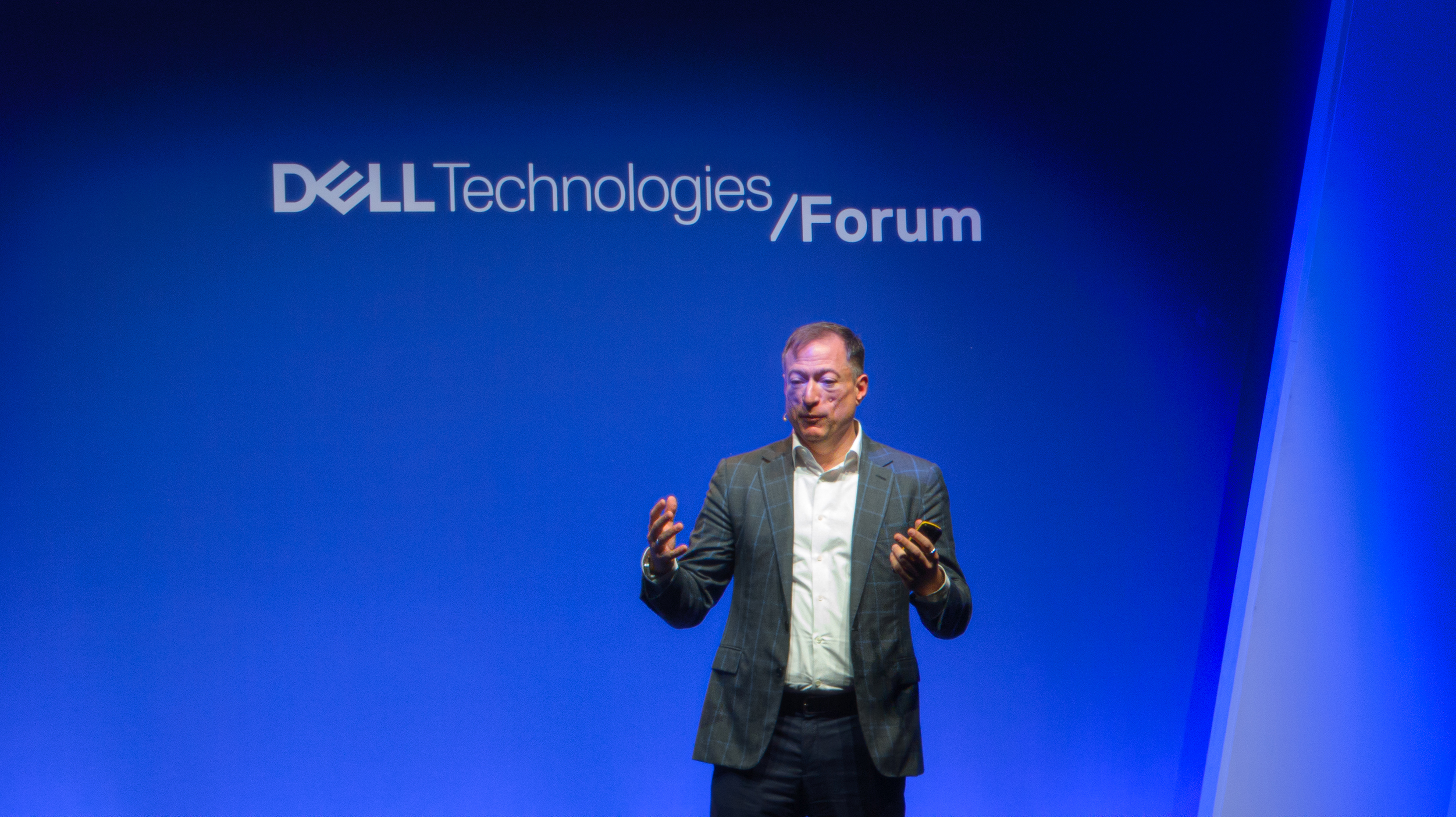 Dell Technologies CTO: ROI on AI should be the number one focus for execs
Dell Technologies CTO: ROI on AI should be the number one focus for execsChasing workforce consensus or playing it safe may cost firms far more in the long run than making decisive moves on AI now and learning from their results
By Rory Bathgate Published